5G
What is the difference between 5G and 5G Plus?

5G is the fifth generation of cellular network technology, and it promises to offer much faster speeds, lower latency, and better reliability than 4G LTE. However, there are different types of 5G networks, and each one has its own strengths and weaknesses.
5G
The standard 5G network uses low-band spectrum, which offers good coverage and reliability but not as fast speeds as other types of 5G networks. The low-band spectrum is also better at penetrating walls and other obstacles, so it can be used in more places.
5G Plus
5G Plus is a faster version of 5G that uses the millimeter wave spectrum. The millimeter wave spectrum is much faster than the low-band spectrum, but it has a shorter range and is more easily blocked by walls and other obstacles.
Which type of 5G is best?
The best type of 5G for you depends on your needs. If you need the fastest speeds possible, then 5G Plus is the way to go. However, if you need good coverage and reliability, then the standard 5G network is a better option.
Here is a table that summarizes the key differences between 5G and 5G Plus:
| Feature | 5G | 5G Plus |
|---|---|---|
| Spectrum | Low-band | Millimeter wave |
| Speed | Up to 100 Mbps | Up to 10 Gbps |
| Coverage | Good | Limited |
| Penetration | Good | Poor |
Which carriers offer 5G Plus?
AT&T, Verizon, and T-Mobile all offer 5G Plus in some areas. However, the coverage is still limited, and it is not available in all cities or towns.
What are the benefits of 5G Plus?
5G Plus offers a number of benefits over the standard 5G network, including:
- Faster speeds: 5G Plus can offer speeds up to 10 Gbps, which is much faster than the standard 5G network.
- Lower latency: 5G Plus has lower latency, which means that data can be transferred more quickly. This can be beneficial for applications such as gaming and streaming video.
- Increased capacity: 5G Plus can support more devices on the network than the standard 5G network. This is important as more and more devices become connected to the internet.
The future of 5G
5G is still in its early stages of development, but it has the potential to revolutionize the way we use the internet. 5G Plus is one of the most exciting aspects of 5G, and it has the potential to offer us much faster speeds and better connectivity. As 5G Plus continues to roll out, we can expect to see even more benefits from this new technology.
Conclusion
In the world of connectivity, the difference between 5G and 5G Plus is significant. While 5G lays the groundwork for advanced communication, 5G Plus takes it a step further by offering unmatched speed, capacity, and responsiveness. As technology continues to evolve, these advancements pave the way for a future that is more interconnected than ever before.
Frequently Asked Questions
Is 5G Plus available everywhere?
As of now, 5G Plus coverage is more limited compared to traditional 5G. It’s primarily deployed in areas with high network congestion.
Can my current device connect to 5G Plus?
Most devices need specific hardware to connect to 5G Plus due to its higher frequency bands. Check with your device manufacturer for compatibility.
Are there any health risks associated with these technologies?
Extensive research is ongoing to ensure the safety of both 5G and 5G Plus. Current evidence suggests that they are safe for public use.
How will 5G Plus impact industries like healthcare?
5G Plus can enable real-time remote healthcare applications, such as remote surgeries and patient monitoring, revolutionizing the industry.
What does the future hold for these technologies?
The future promises even more innovative applications, from autonomous vehicles to smart infrastructure, as these technologies become more widespread.
5G
How 5G technology works
Introduction
Ever wondered why everyone is so hyped about 5G? It’s not just another generation of mobile networks—it’s a game-changer! 5G technology promises lightning-fast speeds, near-instant connectivity, and the power to revolutionize everything from smart cities to healthcare. Let’s dive into how this amazing technology works and what makes it so unique.
From 1G to 4G: A Quick Recap
To understand 5G, let’s rewind a bit.
- 1G: The era of analog voice calls.
- 2G: introduced digital voice and text messaging.
- 3G: Brought mobile internet to life.
- 4G: Revolutionized streaming with faster internet speeds.
Each generation was a leap forward, but even 4G has its limitations.
Key Limitations of 4G
- Speed: Struggles with handling high traffic in dense areas.
- Latency: Not fast enough for real-time applications like autonomous vehicles.
What Makes 5G Different?
Defining Characteristics of 5G
5G isn’t just faster—it’s smarter and more efficient.
- Speeds up to 100 times faster than 4G.
- Ultra-low latency, meaning minimal delay in data transmission.
- Capacity to connect millions of devices simultaneously.
Speed and Latency Improvements
With 5G, downloading a movie takes seconds, and online gaming feels like a face-to-face duel with zero lag. Impressive, right?
Massive Device Connectivity
From smart homes to wearable devices, 5G enables a network where everything is interconnected.
How Does 5G Technology Work?
How 5G technology works
Key Components of 5G Infrastructure
Small Cells
Tiny base stations scattered throughout cities provide uninterrupted coverage.
Massive MIMO (Multiple Input, Multiple Output)
Think of it as a multi-lane highway for data—more lanes mean more traffic handled efficiently.
Beamforming
Directs signals precisely to devices, avoiding interference.
Spectrum Bands Used in 5G
Low Band
Great for wide coverage but offers moderate speeds.
Mid Band
Balances speed and coverage, ideal for cities.
High Band (mmWave)
Blazing fast speeds but limited range—perfect for hotspots.
The Role of Network Slicing in 5G
What is Network slicing?
Network slicing allows one 5G network to act as multiple virtual networks, tailored for different needs.
Benefits of Network Slicing for Businesses
- Prioritized data for critical applications.
- Customizable bandwidth allocation.
Real-World Applications of 5G
IoT: The Internet of Things, Powered by 5G
5G’s ability to connect a massive number of devices simultaneously, combined with its low latency and high reliability, makes it the ideal technology for powering the Internet of Things (IoT).
Potential Applications of IoT with 5G:
- Smart Cities: 5G can enable the development of smart cities by connecting various devices and sensors, such as traffic lights, smart streetlights, and environmental sensors. This can lead to improved traffic management, energy efficiency, and public safety.
- Smart Homes: 5G can power smart homes by connecting devices like smart thermostats, security cameras, and voice assistants. This can enhance home automation, energy efficiency, and security.
- Industrial IoT: 5G can revolutionize industries by enabling the connection of machines, sensors, and robots. This can lead to increased productivity, efficiency, and safety in manufacturing, logistics, and other sectors.
Autonomous Vehicles: The Future of Transportation
Autonomous vehicles require reliable, low-latency communication to make real-time decisions and coordinate with other vehicles and infrastructure. 5G’s low latency and high reliability make it the ideal technology for supporting autonomous vehicle technology.
How 5G Can Support Autonomous Vehicles:
- Vehicle-to-Vehicle (V2V) Communication: 5G enables real-time communication between vehicles, allowing them to share information about their speed, direction, and braking.
- Vehicle-to-Infrastructure (V2I) Communication: 5G allows vehicles to communicate with infrastructure, such as traffic lights and road signs, to improve traffic flow and safety.
- Remote Control of Autonomous Vehicles: 5G enables remote control of autonomous vehicles, allowing operators to intervene in case of emergencies or complex situations.
Remote Healthcare: Transforming Healthcare Delivery
5G’s high bandwidth and low latency can revolutionize healthcare delivery by enabling remote consultations, telemedicine, and remote surgery.
Potential of 5G in Remote Healthcare:
- Remote Consultations: 5G enables high-quality video conferencing, allowing doctors to consult with patients remotely.
- Telemedicine: 5G can enable remote monitoring of patients’ vital signs, allowing for early detection and intervention of health issues.
- Remote Surgery: 5G’s low latency and high reliability make it possible to perform remote surgery, allowing surgeons to operate on patients from a distance.
Challenges and Opportunities of 5G in Healthcare:
- Security and Privacy: Protecting patient data is a major concern in healthcare. Strong security measures must be implemented to ensure the confidentiality and integrity of patient information.
- Regulatory Hurdles: Regulations and standards need to be developed to ensure the safe and effective use of 5G in healthcare.
- Infrastructure Costs: Deploying 5G infrastructure in rural and underserved areas can be costly. Government and industry partnerships are needed to bridge the digital divide.
Conclusion
5G technology is poised to revolutionize the way we live, work, and communicate. With its unprecedented speeds, low latency, and massive capacity, 5G is unlocking a new era of innovation and connectivity. From powering the Internet of Things to enabling autonomous vehicles and remote healthcare, 5G’s potential is vast.
However, the full realization of 5G’s potential will depend on several factors, including the deployment of robust 5G networks, the development of new applications and services, and the adoption of advanced technologies like edge computing and artificial intelligence. As 5G continues to evolve, we can expect to see even more exciting developments in the years to come.
FAQ
What is the physics behind 5G?
Compared to its predecessor, 4G, 5G offers ten times as much capacity. Because 5G employs additional higher-frequency waves to encode and transmit data in addition to low and medium-frequency radio waves, the increased bandwidth is made possible. Bandwidth is comparable to a highway’s width.
How does 5G signal travel?
Radio frequencies, sometimes referred to as spectrum, are used by wireless communications systems to transmit data over the atmosphere. 5G functions similarly, although it makes use of higher, less congested radio frequencies. As a result, it can convey more data much more quickly.
Who has the largest 5G network in the world?
Huawei, Shentong Metro, and China Mobile Shanghai Create the Biggest 5G Private Rail Network in the World The largest 5G private rail network in the world is being built by Huawei, Shentong Metro, and China Mobile Shanghai.
Is 5G faster than LTE?
The speed and reduced latency of 5G are its primary advantages over 4G LTE. In order to provide faster speeds, lower latency, higher capacity, and more dependable broadband than 4G LTE networks, 5G networks are based on a new radio technology called 5G NR, which uses high-frequency radio waves.
5G
5g network components
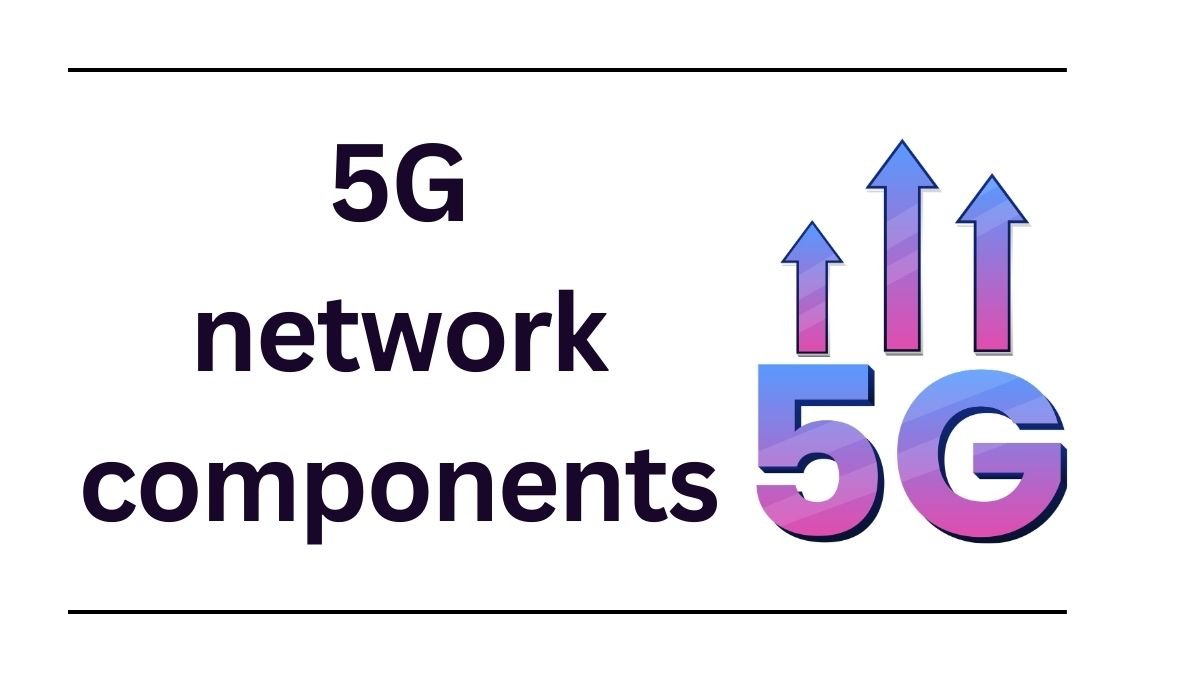
5G has emerged as a game-changer, promising unprecedented speed, reliability, and connectivity. As we delve into the intricacies of 5G network components, it becomes evident that this revolutionary technology is not merely an upgrade but a paradigm shift. Let’s unravel the key components shaping the future of connectivity.
Introduction to 5G Network Components
The journey into the world of 5G begins with an understanding of its core components. Unlike its predecessors, 5G is not just about faster internet on your smartphone; it’s a holistic transformation of the entire network infrastructure.
The Core Elements of 5G Networks
1. Millimeter Waves
One of the pillars of 5G is the utilization of millimeter waves, enabling higher data transfer rates. These waves, operating in the 30-300 GHz range, pave the way for faster and more efficient communication.
2. Small Cells
In contrast to traditional large-cell towers, 5G relies on a dense network of small cells. These compact stations enhance coverage and capacity, ensuring a seamless user experience in densely populated areas.
3. Massive MIMO
Massive Multiple Input, Multiple Output (MIMO) technology plays a crucial role in 5G networks. By using numerous antennas, massive MIMO optimizes data transfer, minimizing latency, and boosting network efficiency.
Radio Access Network (RAN) in 5G
1. Base Stations
At the heart of 5G’s RAN are base stations, connecting devices to the network. These stations facilitate the exchange of data, ensuring a reliable and high-speed connection.
2. Antennas
The deployment of advanced antennas is a key component in achieving the high speeds promised by 5G. These antennas come in various forms, each catering to specific needs and scenarios.
3. Backhaul
Efficient backhaul mechanisms ensure the seamless flow of data between the core network and the RAN. The backhaul is a critical aspect of 5G infrastructure, contributing to low latency and high bandwidth.
Core Network Components
1. Cloud-native Architecture
5G embraces a cloud-native architecture, decentralizing network functions. This approach enhances flexibility, scalability, and resource utilization.
2. Network Slicing
Network slicing allows the creation of multiple virtual networks within the same physical infrastructure. This innovation enables tailored solutions for diverse applications, from autonomous vehicles to augmented reality.
3. Edge Computing
The integration of edge computing in 5G networks brings computing resources closer to end-users. This reduces latency and enhances the overall performance of applications and services.
Devices and User Equipment
1. 5G Smartphones
The widespread adoption of 5G smartphones is a driving force behind the network’s growth. These devices support higher data speeds, enabling users to experience the full potential of 5G connectivity.
2. IoT Devices
The Internet of Things (IoT) ecosystem thrives on 5G connectivity. From smart homes to industrial sensors, 5G enables a massive influx of connected devices, transforming how we interact with our surroundings.
3. Wearables
Wearable devices, equipped with 5G capabilities, redefine the user experience. From health monitoring to augmented reality glasses, wearables leverage 5G to offer seamless and immersive functionalities.
5G Security Measures
1. Encryption
Ensuring the security of data transmission is paramount in 5G networks. Robust encryption mechanisms safeguard sensitive information, protecting users from potential cyber threats.
2. Authentication
Identity verification is a crucial aspect of 5G security. Robust authentication protocols prevent unauthorized access and ensure the integrity of the network.
3. Network Slicing Security
As network slicing becomes integral to 5G, addressing security concerns specific to each virtual network becomes imperative. Customized security measures for individual slices fortify the overall network.
Challenges and Future Developments
1. Interference and Obstacles
Despite its potential, 5G faces challenges related to interference and obstacles. Addressing these issues is crucial for ensuring consistent and reliable connectivity.
2. Integration with Existing Networks
Integrating 5G with existing networks poses challenges. Compatibility issues need to be resolved for a smooth transition and coexistence with 4G and other technologies.
3. Anticipated Technological Advancements
The future holds promises of technological advancements in 5G, including improved efficiency, higher data rates, and novel applications. Staying ahead of the technological curve is essential for harnessing the full potential of 5G.
The Impact of 5G Network Components
1. Enhanced Connectivity
5G’s impact extends beyond speed; it revolutionizes connectivity. From faster downloads to real-time communication, 5G sets the stage for a connected future.
2. Transformative Industries
Industries such as healthcare, manufacturing, and transportation undergo transformative changes with the integration of 5G. Enhanced efficiency and communication redefine traditional processes.
3. Advancements in Healthcare
The healthcare sector witnesses groundbreaking advancements with 5G, from remote surgeries to real-time patient monitoring. The reliability of 5G connectivity plays a pivotal role in these innovations.
Comparisons with Previous Generations
1. Speed and Latency
Comparing 5G with its predecessors reveals unparalleled speed and reduced latency. The difference is not just incremental; it’s a leap into a new era of instantaneous communication.
2. Network Capacity
The increased network capacity of 5G enables the simultaneous connection of a massive number of devices. This scalability is a significant leap forward from previous generations.
3. Use Cases
From smart cities to smart agriculture, 5G’s use cases surpass the boundaries of traditional networking. Exploring these diverse applications reveals the versatility of 5G technology.
The Global Rollout of 5G
1. Leading Countries in 5G Adoption
Certain countries lead the global race in adopting 5G technology. Understanding the trends in these nations provides insights into the global evolution of 5G.
2. Economic Implications
The economic impact of 5G is profound, influencing industries, job markets, and innovation. Nations investing in 5G have witnessed a surge in economic growth and technological advancements.
3. Regulatory Frameworks
The development and implementation of robust regulatory frameworks are essential for the successful deployment of 5G. Balancing innovation with ethical and safety considerations is a delicate task.
Future Applications and Possibilities
1. Augmented Reality (AR) and Virtual Reality (VR)
The combination of 5G and AR/VR opens up new dimensions of immersive experiences. From gaming to professional training, the possibilities are limitless.
2. Autonomous Vehicles
5G plays a pivotal role in the evolution of autonomous vehicles. Real-time communication and data exchange are critical for ensuring the safety and efficiency of self-driving cars.
3. Smart Cities
The concept of smart cities is not a distant dream but a tangible reality with 5G. From intelligent traffic management to energy-efficient solutions, 5G transforms urban living.
Addressing Concerns and Misconceptions
1. Health Concerns
Public concerns regarding the health implications of 5G require transparent communication. Addressing these concerns with scientific facts is crucial for fostering public trust.
2. Environmental Impact
Examining the environmental impact of 5G infrastructure is essential. Balancing technological progress with eco-friendly practices ensures a sustainable future.
3. Privacy Issues
As 5G facilitates a hyper-connected world, privacy concerns come to the forefront. Striking a balance between connectivity and individual privacy is an ongoing challenge.
The Role of 5G in Industry 4.0
1. Smart Manufacturing
In the era of Industry 4.0, 5G plays a pivotal role in smart manufacturing. From predictive maintenance to efficient supply chain management, 5G transforms the manufacturing landscape.
2. Supply Chain Optimization
Efficient supply chain management becomes a reality with 5G. Real-time tracking, data analytics, and automation enhance the overall efficiency of supply chain operations.
3. Industrial IoT
The integration of 5G with the Industrial Internet of Things (IoT) ushers in a new era of connectivity and control. Industrial processes become more agile, responsive, and intelligent.
Tips for Harnessing the Power of 5G
1. Business Integration
Businesses can leverage 5G by integrating it into their operations. From improved customer experiences to enhanced efficiency, the benefits are vast.
2. User Education
Educating users about the capabilities and implications of 5G is essential. Empowered users make informed choices, contributing to the responsible and widespread adoption of 5G.
3. Collaborative Innovation
The true potential of 5G unfolds when industries collaborate on innovative solutions. Cross-sector collaborations drive advancements and open up new possibilities for 5G applications.
Conclusion
In conclusion, 5G network components represent the cornerstone of the digital future. From millimeter waves to advanced security measures, each element contributes to the unparalleled connectivity and transformative potential of 5G. Embracing this technology requires addressing challenges, fostering innovation, and navigating ethical considerations. As we stand on the brink of a connected era, the impact of 5G extends beyond faster downloads—it reshapes industries, societies, and daily experiences.
FAQs About 5G Network Components
Is 5G safe for health?
Addressing common concerns about the potential health impact of 5G.
How does 5G differ from previous generations?
Exploring the key differences in speed, latency, and network capacity.
What industries benefit the most from 5G?
Highlighting the transformative impact of 5G on various industries.
How can businesses integrate 5G effectively?
Providing practical tips for businesses to harness the power of 5G.
What are the future possibilities of 5G technology?
Delving into the potential applications and advancements in the 5G landscape.
5G
What are the 5G CSI-RS key characteristics?
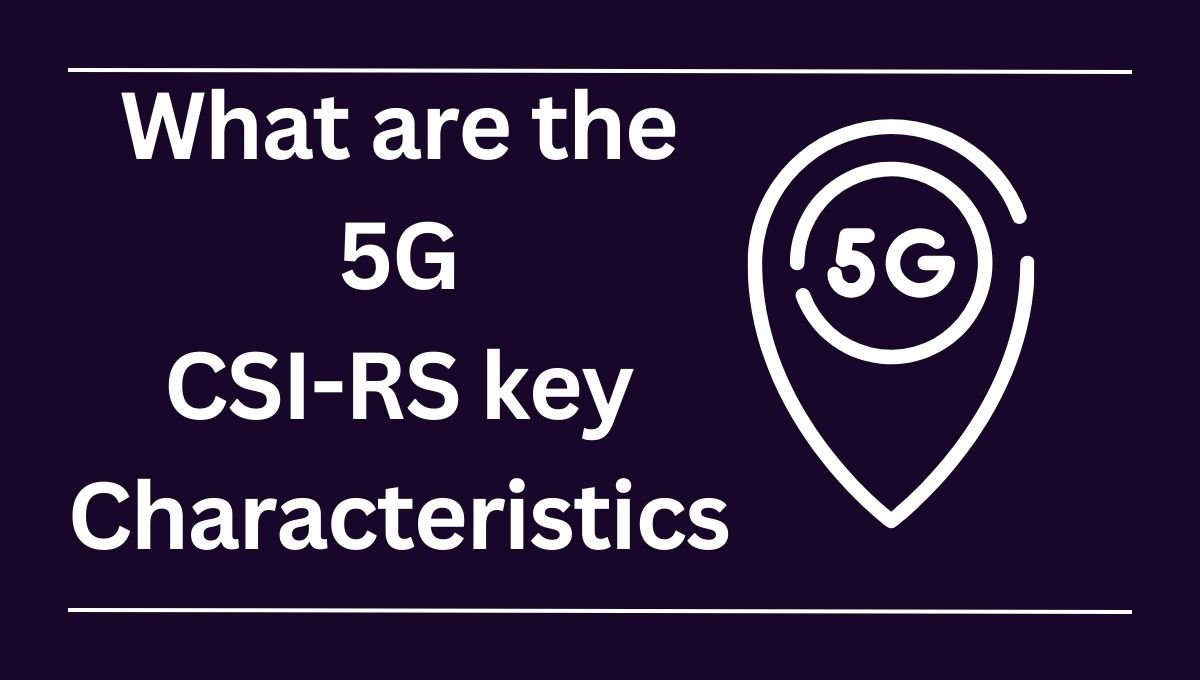
The evolution of wireless communication technologies has led to the emergence of 5G, which promises faster speeds, lower latency, and enhanced connectivity. Within the realm of 5G, the Channel State Information Reference Signal (CSI-RS) plays a pivotal role, offering key characteristics that shape the efficiency and performance of 5G networks.
Introduction to 5G CSI-RS
In the ever-evolving landscape of telecommunications, 5G CSI-RS stands out as a critical component. It serves as a reference signal that provides valuable information about the channel state, enabling the optimization of signal transmission.
Importance of CSI-RS in 5G Networks
Understanding the significance of CSI-RS is crucial for comprehending its role in 5G networks. This section explores how CSI-RS contributes to the overall performance and reliability of 5G communication.
Key Characteristics of 5G CSI-RS
5G CSI-RS, which stands for Channel State Information—Reference Signal, plays a crucial role in optimizing data transmission within 5G networks. Here are its key characteristics:
Purpose:
- Unlike 4G LTE, 5G doesn’t have cell-specific reference signals. CSI-RS are configurable signals that user equipment (UE) like your phone can monitor and report on, providing the base station with essential channel information.
- This information helps the base station understand the propagation conditions between itself and the UE, allowing for various optimizations:
- Adaptive beamforming: directing radio signals precisely towards the UE for improved signal strength and reduced interference.
- Channel quality estimation: accurately predicting channel behavior for better error correction and power allocation.
- Mobility management: efficiently handing over UEs between cells while maintaining seamless connectivity.
Reference Signal Structure:
- CSI-RS signals come in three categories:
- NZP-CSI-RS: Non-zero power CSI-RS, offering high measurement accuracy at the cost of increased signaling overhead.
- ZP-CSI-RS: Zero power CSI-RS, providing lower accuracy but consuming less resources.
- CSI-IM-RS: Channel State Information—Initial Measurement Reference Signal, specifically designed for initial UE synchronization and beam acquisition.
- Each category can be further configured with various parameters like subcarrier spacing, transmission bandwidth, and antenna ports, tailoring them to specific use cases and deployment scenarios.
Frequency and Time-Domain Positioning:
- CSI-RS can be placed flexibly within the available frequency and time domain resources, allowing for:
- Frequency diversity: spreading signals across different frequencies to mitigate frequency-selective fading.
- Time diversity: spreading signals across different time slots to combat fast-changing channels.
- Spatial diversity: utilizing multiple antennas at both the base station and UE for spatial multiplexing and beamforming.
Configurable Bandwidth and Subcarrier Spacing:
- CSI-RS can be configured to occupy different bandwidths and subcarrier spacings depending on the required accuracy and available resources.
- Wider bandwidths and smaller subcarrier spacings offer higher accuracy but consume more spectrum.
- This flexibility allows for optimizing CSI-RS usage based on specific network conditions and service requirements.
Beamforming and Massive MIMO Support:
- CSI-RS plays a vital role in enabling beamforming techniques, especially in massive MIMO systems with numerous antennas.
- The accurate channel information helps steer radio signals precisely towards individual UEs, maximizing signal strength and minimizing interference, even in dense deployments.
By understanding these key characteristics, you gain insight into how 5G CSI-RS facilitates efficient and reliable data transmission, laying the foundation for various innovative applications within the 5G ecosystem.
Advantages of CSI-RS in 5G
5G CSI-RS offers several significant advantages over its predecessors in 4G and contributes to the overall enhanced performance and capabilities of 5G networks. Here are some key advantages:
Improved data throughput and spectral efficiency:
- Accurate channel information: CSI-RS provides the base station with a more precise understanding of the propagation conditions between itself and the user equipment (UE). This allows for better control over signal transmission, leading to improved data throughput and overall spectral efficiency.
- Adaptive beamforming: By directing radio signals specifically towards the UE, CSI-RS enables beamforming techniques. This reduces interference from other users and allows for higher data rates, especially in crowded environments.
- Massive MIMO support: CSI-RS plays a crucial role in enabling massive MIMO systems with numerous antennas. The accurate channel information allows for precise beamforming towards multiple users simultaneously, further boosting data throughput and spectral efficiency.
Enhanced user experience:
- Reduced latency: Accurate channel information allows for faster response times between the base station and the UE, leading to lower latency and a more responsive user experience, especially crucial for real-time applications like gaming and VR.
- Improved mobility management: By providing insights into channel dynamics, CSI-RS facilitates smoother handovers between cells, ensuring seamless connectivity for UEs on the move.
Increased network capacity and flexibility:
- Dynamic resource allocation: The flexibility in configuring CSI-RS allows for tailoring its usage to specific network conditions and service requirements. This helps in efficiently allocating resources and maximizing network capacity.
- Support for diverse use cases: CSI-RS can be adapted to various deployment scenarios and use cases, from high-speed data services to low-power machine-type communication. This versatility contributes to the overall flexibility and adaptability of 5G networks.
Conclusion
In conclusion, 5G CSI-RS emerges as a critical enabler for the next generation of wireless communication. Its key characteristics, advantages, and diverse applications position it as a cornerstone in the ever-evolving landscape of telecommunications.
FAQs
What is CSI-RS in 5G?
CSI-RS, or Channel State Information Reference Signal, is a crucial element in 5G networks, providing valuable information about the channel state for optimizing signal transmission.
How does CSI-RS contribute to massive MIMO in 5G?
CSI-RS enhances Massive Multiple-Input Multiple-Output (MIMO) technology, improving the capacity and data rates of 5G networks through efficient signal transmission.
What challenges does CSI-RS face, and how are they addressed?
Challenges such as interference management, power consumption, deployment hurdles, and security considerations are addressed through various solutions, ensuring the robustness of CSI-RS.
Can businesses benefit from leveraging 5G CSI-RS?
Yes, businesses can gain a competitive edge by leveraging the capabilities of 5G CSI-RS, enhancing connectivity, reliability, and efficiency in their operations.
What are the future prospects of 5G CSI-RS?
The future holds promises of increased efficiency, enhanced capacity, and emerging use cases for 5G CSI-RS as technology continues to advance.

 5G1 year ago
5G1 year agoHow 5G Technology Will Revolutionize Our Lives and Work

 Tech4 months ago
Tech4 months ago3d Printer Technology (Application) (History) And (Types)

 Computer1 year ago
Computer1 year ago“Bleeping Computer: Your Ultimate Guide to Cybersecurity”

 5G1 year ago
5G1 year agoDifference between 5G nsa and 5G sa

 Tech1 year ago
Tech1 year agoExplain How Technology Has Affected People’s Activity Levels

 cloud computing4 months ago
cloud computing4 months agoEdge Computing: Revolutionizing Data Processing and Analysis

 5G1 year ago
5G1 year agoHow does 5g work on iPhone?

 Computer1 year ago
Computer1 year agoWhat is a Server on the Internet and How It Works

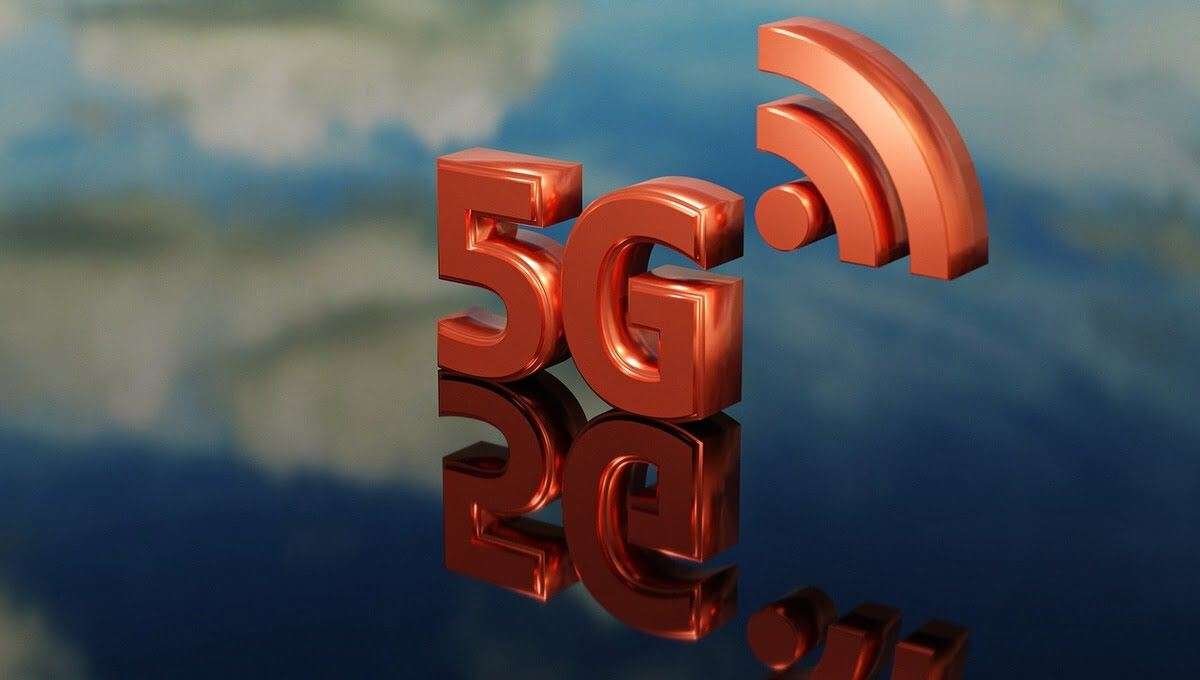
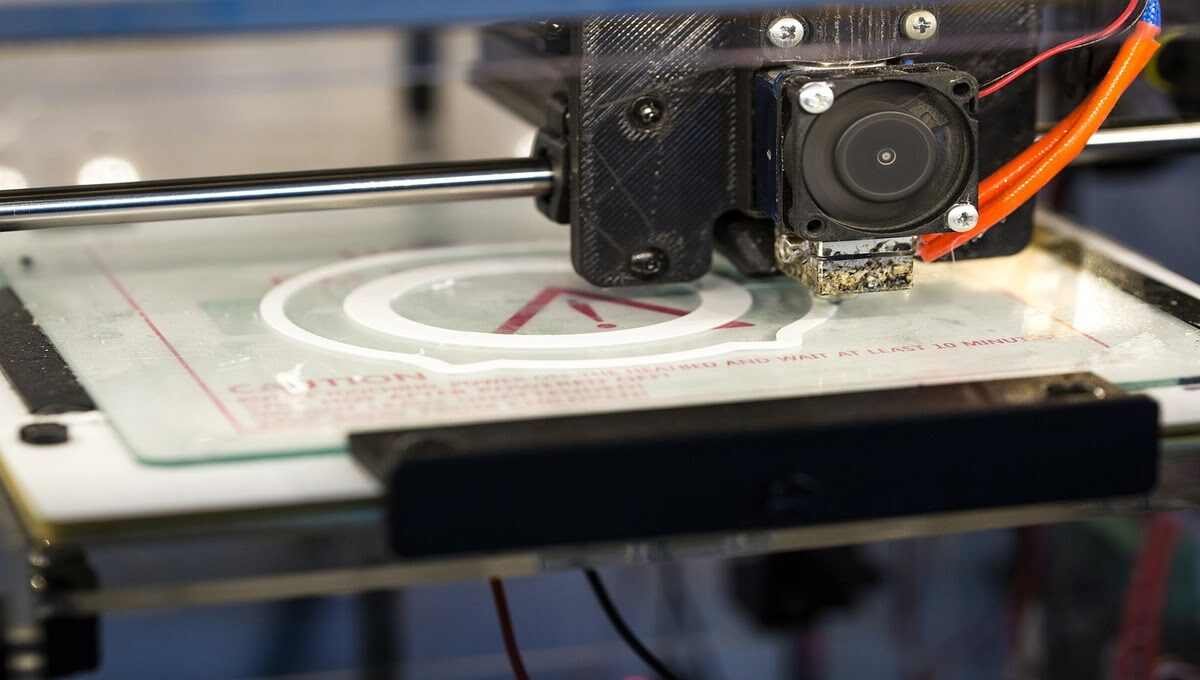



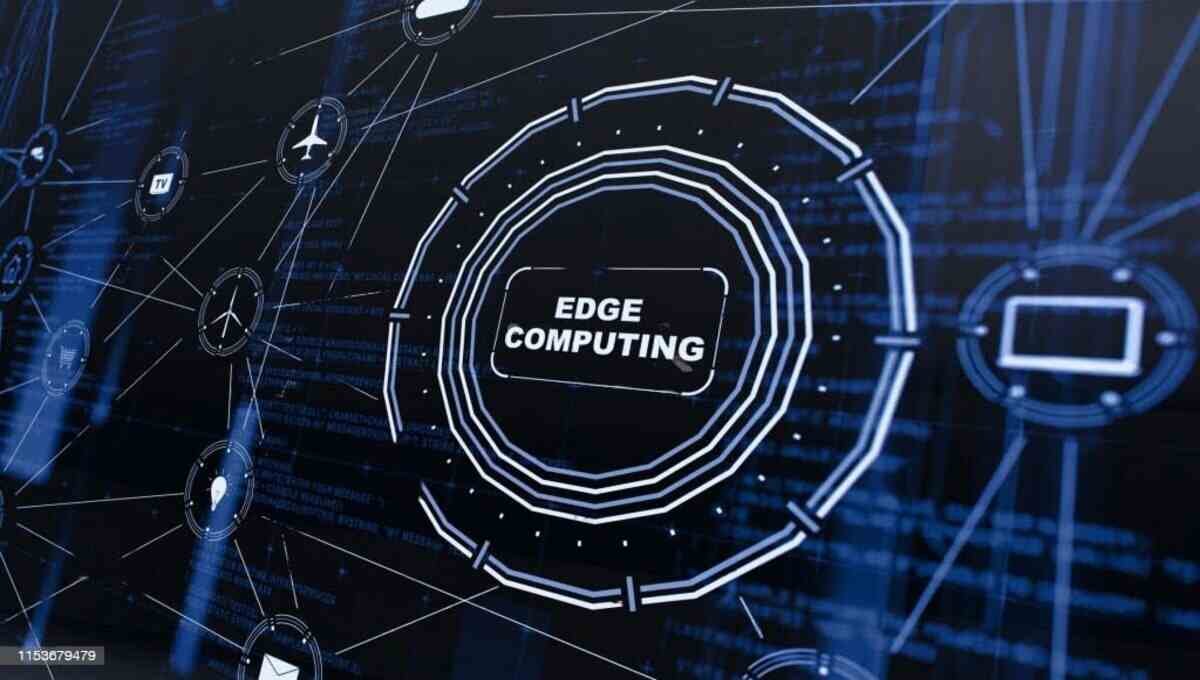


Eyeitesy
September 30, 2023 at 2:53 pm
tadalafil 5mg price
DavidGeoto
September 30, 2023 at 3:31 pm
prednisolone 15 mg price
SEO_hiEt
October 7, 2023 at 5:45 pm
Курсы SEO: Основы оптимизации и продвижения сайта
продвижение сайта обучение http://www.seo111.ru/.
elektronik_jpPl
October 13, 2023 at 7:49 pm
Безопасный и надежный интернет магазин электроники в ДНР
интернет магазины электроники в донецке днр http://internet-magazin-elektroniki-dnr.ru/.
kremaciya_rmEi
October 24, 2023 at 11:46 pm
Церемония кремации в Москве: особенности и символика
кремация человека в москве https://www.ritual-gratek13.ru/.
potenciya_qcpr
October 28, 2023 at 6:49 am
Инновационные препараты и средства для потенции: рекомендации врачей
Купить таблетки от простатита http://www.007-apteka.online/.
uborka_uomt
October 28, 2023 at 6:27 pm
Квалифицированные специалисты по уборке после пожара
пожар клининг https://www.uborka-posle-pojara.ru/.
elektrokarniz_nzOi
October 30, 2023 at 8:55 pm
Современные решения для традиционных задач: выберите электрокарниз
автоматические карнизы для штор стоимость [url=prokarniz19.ru]prokarniz19.ru[/url].
dokumentooborot_svMt
November 7, 2023 at 6:30 am
Внедрение электронного документооборота: решение для оптимизации бизнес-процессов
управление электронным документооборотом https://ehlektronnyj-dokumentooborot.ru.
pechat_gjEl
November 7, 2023 at 7:03 pm
Печать на футболках: качество, которое говорит само за себя
футболки с принтом на заказ москва pechat-na-futbolkah-77.ru.
shtory_fdon
November 16, 2023 at 4:53 am
Будьте в тренде с автоматическими римскими шторами для вашего дома
штора с электроприводом http://www.prokarniz24.ru.
evakuator_ecMr
November 16, 2023 at 3:09 pm
Эвакуаторы для экстренных ситуаций: быстро и надежно
эвакуатор новосибирск https://www.xn—–6kcagcd2cbog5agfcbgyiqedgw0w.xn--p1ai/.
santehnik_gfpl
November 17, 2023 at 8:04 am
Услуги сантехника в вашем районе – быстрый выезд и качественное выполнение работ
услуги сантехника в спб http://www.vyzovsantekhnikaspb.ru.
shtory_fbPn
November 18, 2023 at 2:24 am
Идеальное решение для спальни и гостиной: шторы на пульте управления
римская штора на пульте управления http://prokarniz28.ru/.
santehnik_ayoi
November 18, 2023 at 4:36 am
Услуги сантехника в праздники и выходные
сантехник спб http://www.vyzovsantekhnikaspb01.ru.
visa_brst
November 19, 2023 at 4:53 pm
Comment faire une demande de visa pour la Chine
ambassade de chine visa http://www.alsvisa11.com/.
zhalyuzi_lhpt
November 23, 2023 at 12:36 pm
Повышаем комфорт: жалюзи с электроприводом и их преимущества
электро жалюзи на окна купить https://www.prokarniz23.ru/.
wow_boost_tlmr
November 28, 2023 at 5:27 am
World of Warcraft Boosting: Level Up Like a Pro
wow boost service http://www.wow–boost.com/.
potencia_wsSr
November 28, 2023 at 12:00 pm
Препараты для долгой потенции: результаты, которым можно доверять
Левитру в Минске Без Рецепта Варденафил https://www.007-apteka.online.
klining_hsKi
November 30, 2023 at 1:48 am
Забудьте о грязи и пыли: Профессиональный клининг на страже чистоты
заказать клининг https://www.klining–moskva.ru/.
noutbuk_uaEr
November 30, 2023 at 3:35 pm
Самые низкие цены на ноутбуки в ДНР – выгодные акции
купить ноутбук в снежном днр https://www.kupit-noutbuk-v-dnr.ru.
mancera_jnka
December 2, 2023 at 1:43 am
Духи Mancera – ваш шаг к миру высокой парфюмерии
духи мансера цена https://mancera1.ru.
tlovertonet
December 31, 2023 at 5:44 pm
Thanks for all of the work on this website. My daughter enjoys managing investigation and it’s really simple to grasp why. Many of us notice all concerning the compelling form you convey useful guides on the blog and therefore strongly encourage participation from the others on this subject matter plus our favorite child is without a doubt starting to learn a lot. Enjoy the remaining portion of the year. You are performing a very good job.